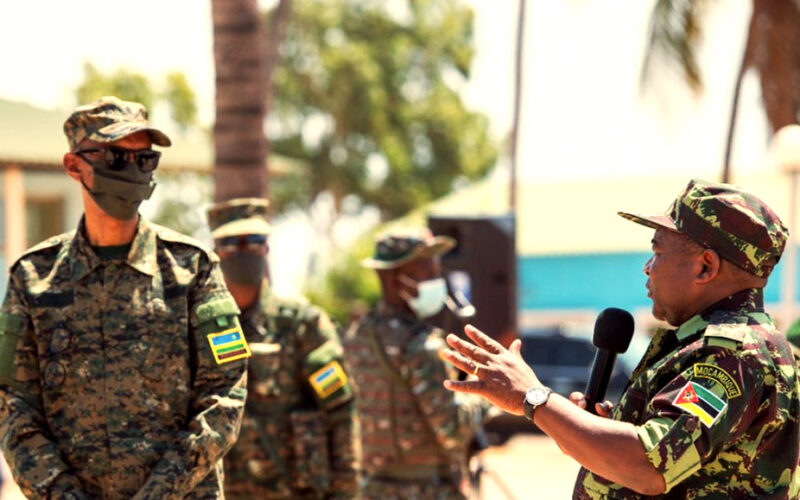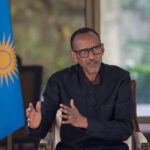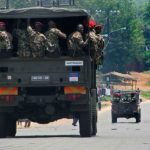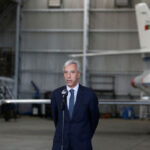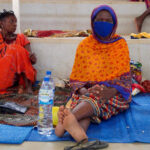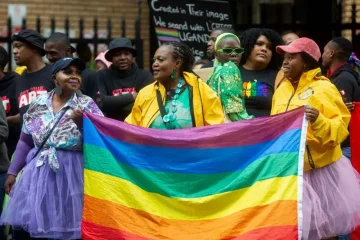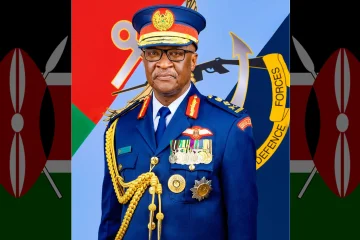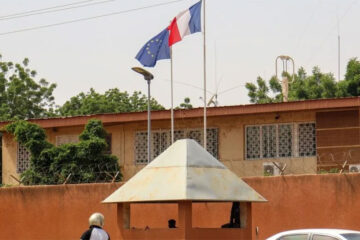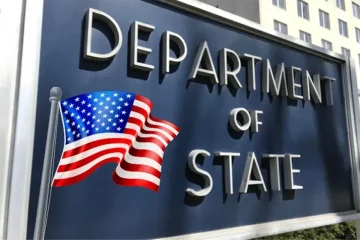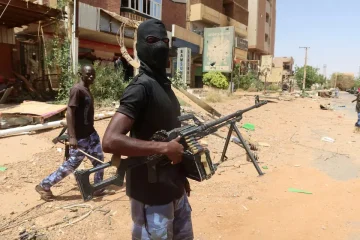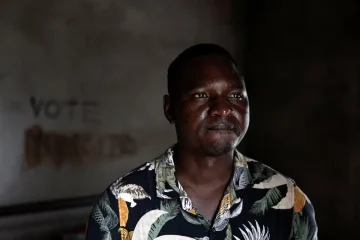BAZ RATNER and SHAFIEK TASSIEM
RWANDAN forces patrolled burnt-out streets once besieged by Islamist fighters in northern Mozambique, saying it was now safe for civilians to return to the gas-rich region, despite U.N. warnings of a continuing militant threat.
Soldiers laid out rifles and rocket launchers seized from the militants. The Rwandan military’s spokesman said they had already brought 25,000 people back home. “It is very safe for them to go back,” Ronald Rwivanga told Reuters.
In July, allied Rwandan-Mozambican troops moved in to recapture parts of northern Cabo Delgado – an area hosting $60 billion worth of gas projects that the militants have been attacking since 2017.
Mozambique’s government has said the fighters are on the run and some local officials have encouraged civilians to return, according to media reports.
But United Nations officials are not so sure.
A document compiled in September for U.N. agencies and other aid groups, seen by Reuters, said it was not clear whether militant capabilities had been much reduced. “Fighting continues in certain locations and civilian authorities have not been re-established,” it added.
On Thursday, children played in the streets of the town of Palma and vendors sold goods from kiosks, six months after the militants attacked the settlement, killing dozens and forcing tens of thousands to flee.
President Kagame: I want to start by thanking my brother and friend, President Nyusi and his delegation for inviting us to this city and to thank you Rwandan and Mozambican soldiers and Police for all the hard work you have done to liberate Cabo Delgado. pic.twitter.com/GwKKzzQ1Su
— Presidency | Rwanda (@UrugwiroVillage) September 24, 2021
But 60km south in the port of Mocimboa da Praia – a hub needed for cargo deliveries for the gas projects – the streets were largely deserted, flanked by windowless, rubble-strewn buildings and overturned military vehicles.
Graffiti, using a local name for the militant group, reads: “If you want to make Al-Shabaab laugh, threaten them with death.”
“THE WAR THAT REMAINS IS HUNGER”
Aside from the Rwandans, a contingent of forces from the regional bloc, the Southern African Development Community (SADC) is also patrolling northern Cabo Delgado.
Rwivanga said the Rwandans have been moving civilians back into the area they control – a region around a $20 billion liquefied natural gas (LNG) project run by oil major TotalEnergies, which was forced to a halt by the Palma attack.
Yet security analysts say the Mozambican military deficiencies that allowed the insurgency to take hold in the north – including soldiers that are ill equipped, undisciplined and poorly paid – won’t be easily reversed.
President Nyusi welcomes President Kagame to Pemba, Mozambique for a two-day working visit. The Presidents will meet with the Rwandan Joint Forces working with Mozambican Defence Armed Forces in Cabo Delgado, followed by tête-à-tête and bilateral meetings and a press conference. pic.twitter.com/5IgFJMRl8f
— Presidency | Rwanda (@UrugwiroVillage) September 24, 2021
Even with other forces there, they say, security is uncertain outside of small, heavily guarded areas.
Returnees, meanwhile, are more preoccupied with where the next meal is coming from. The World Food Programme said this week that the first shipment of aid had reached Palma since the March attack.
“Now the situation is calm, the war that remains is hunger and lack of jobs,” Ibrahimo Suleman, 60, a resident who works for a kitchen-fitting company said.
Many others remain too afraid or unwilling to return, with almost 750,000 people still displaced as of this month, according to the International Organisation of Migration.
This evening in Pemba, President Kagame is attending a dinner hosted in his honour by Mozambican President Filipe Nyusi. pic.twitter.com/BkXEsQf9J3
— Presidency | Rwanda (@UrugwiroVillage) September 24, 2021
Mozambicans welcoming President Paul Kagame in Mozambique. pic.twitter.com/0MNWA9r13l
— Rwanda Beranova 🇷🇼 (@TuyisengeEpiph1) September 24, 2021

